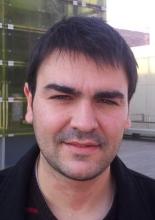The question of how to accelerate the diffusion of research evidence into clinical practice has become an important issue among academics and public policy actors, and has been captured by the concept of translational research. In this paper propose three contentions. First, that a critical aspect of translational research is the interaction between the diversity of actors involved along the process. These include basic scientists, clinical scientists, health professionals, patients and any other individual or group that may play a relevant role along the so-called “translational continuum”. However, moving and spreading new knowledge in the biomedical context is particularly challenging since it involves an effective communication and interaction between many different professional groups. Second, the scientists’ participation in translational research activities and outputs are a good expression of their capacity to identify clinical needs and to successfully exploit routes to move fundamental knowledge into clinical applications. An explicit focus on the micro-level interactions between biomedical scientists may help to identify the individuals that are more prone to bridge gaps between different communities and how this influences the flow of knowledge between them. And third, that the scientists’ propensity to participate in translational research activities is better explained if individual abilities and motives are considered. Our discussion introduces that the scientists’ heterogeneity in terms of their cognitive breadth and their perceived impact on beneficiaries may explain differences in the scientists’ inclinations to participate in translational research activities.
About Óscar Llopis Córcoles
Check Oscar's profile here.

Óscar Llopis Córcoles
INGENIO [CSIC-UPV]
When
Where
Ciudad Politécnica de la Innovación
Edificio 8E, Acceso J, Planta 4ª (Sala Descubre. Cubo Rojo)
Universidad Politécnica de Valencia | Camino de Vera s/n